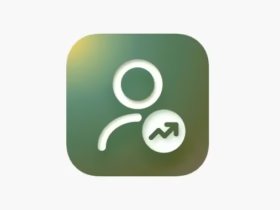Cracking the IBPS RRB PO Mains exam takes more than just knowing the syllabus. It requires innovative strategies, real-time practice, and an eye for patterns. Candidates often feel overwhelmed by the variety of question types that appear. In addition to that, unpredictable difficulty levels and things can get stressful quickly. That’s where simulation tools and trial runs become invaluable.
Taking an IBPS RRB PO free mock test gives a clear idea of how the exam is structured. These tools reflect the current exam format with stunning accuracy. Over time, candidates start recognizing which sections tend to be more challenging. Read more to uncover how these practice tools boost actual exam performance.
Revealing the Hidden Blueprint of the Exam
Mock tests act like a window into the minds of exam setters. They break down how questions are framed and grouped. By reviewing each practice session, aspirants can spot recurring concepts. It’s like peeling back layers of a complex puzzle. Over time, clear structures emerge in each subject section.
The pattern recognition doesn’t happen overnight, though. It’s a gradual process of noticing and remembering key details. Sometimes, it’s the phrasing of a tricky question. Other times, it’s the subtle shifts in topic weightage across sections. Either way, mock tests bring those patterns to the surface.
Adjusting to Varying Levels of Difficulty
Not every exam paper is created equal. Some lean heavily on logical puzzles, while others test time management through long calculations. The benefit of mock tests is that they expose students to this variety early. This familiarity helps avoid being caught off guard during the actual exam. Exposure to diverse formats trains the brain to switch gears quickly.
Practising with different versions builds a thick skin. It teaches how to stay composed, even when the paper feels more challenging than expected. That emotional readiness can’t be underestimated. Many underperform simply because they freeze under pressure. Mock exams build resistance to that mental freeze.
Improving Speed, Accuracy, and Strategy
Time pressure is one of the biggest challenges in the exam. Knowing an answer isn’t enough if it takes too long to find it. Regular practice under timed conditions rewires thinking patterns. With every test, responses get sharper and faster. Candidates start eliminating options quicker and choosing brighter paths to solve problems.
Reviewing completed tests is equally vital. Mistakes made during practice highlight gaps in understanding. Spotting those weaknesses gives direction to study further. It stops guesswork and brings focus to what really matters. Eventually, every move made during the exam feels deliberate and calculated.
Building Exam-Day Confidence
Familiarity reduces fear. The more someone interacts with real-like practice tools, the less intimidating the actual paper feels. Candidates walk into the exam hall knowing they’ve done this before and that confidence is robust. It steadies hands and sharpens focus when it counts most.
Building that self-belief doesn’t require miracles. It just needs consistent exposure to realistic exam conditions. Each attempt brings lessons and experience. And with every lesson, confidence builds a little more. It’s a quiet transformation but an essential one.
Tracking Progress and Identifying Growth Areas
Consistent practice with mock exams reveals how far preparation has come. Each test serves as a checkpoint. Scores offer measurable insights into strengths and problem areas. This clarity helps me fine-tune study plans and revise more effectively.
Rather than studying everything blindly, the focus shifts to where improvement is needed most. That saves time and maximizes results. Strategic preparation becomes easier when backed by accurate data from regular testing.
Starting with an IBPS RRB PO free mock test is one of the smartest moves any candidate can make. Understanding patterns and difficulty shifts becomes easier with consistent use. The unpredictability of the real exam no longer feels like a threat. Instead, it becomes manageable, even familiar. Mock tests, when used wisely, serve as both a compass and a training ground.









